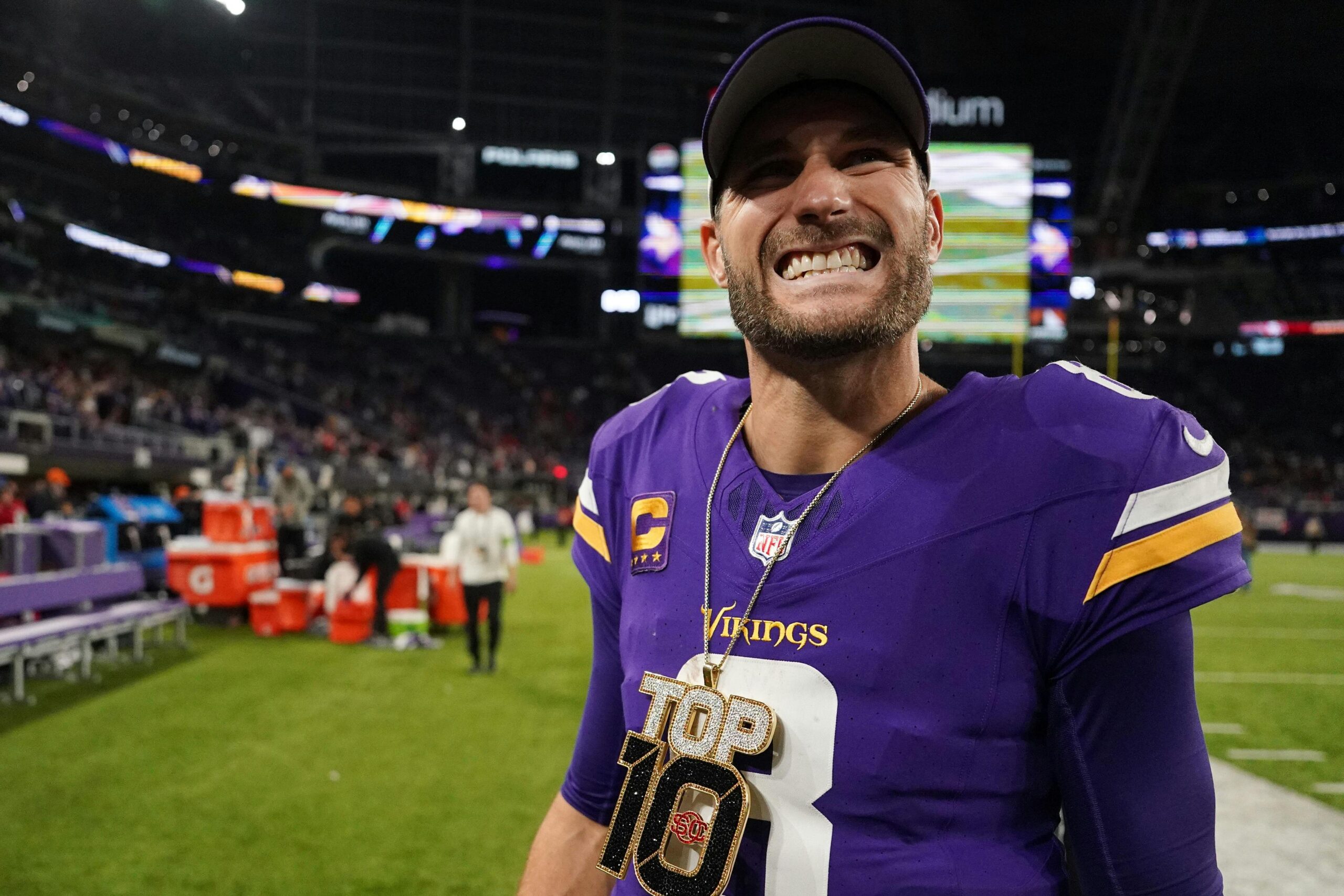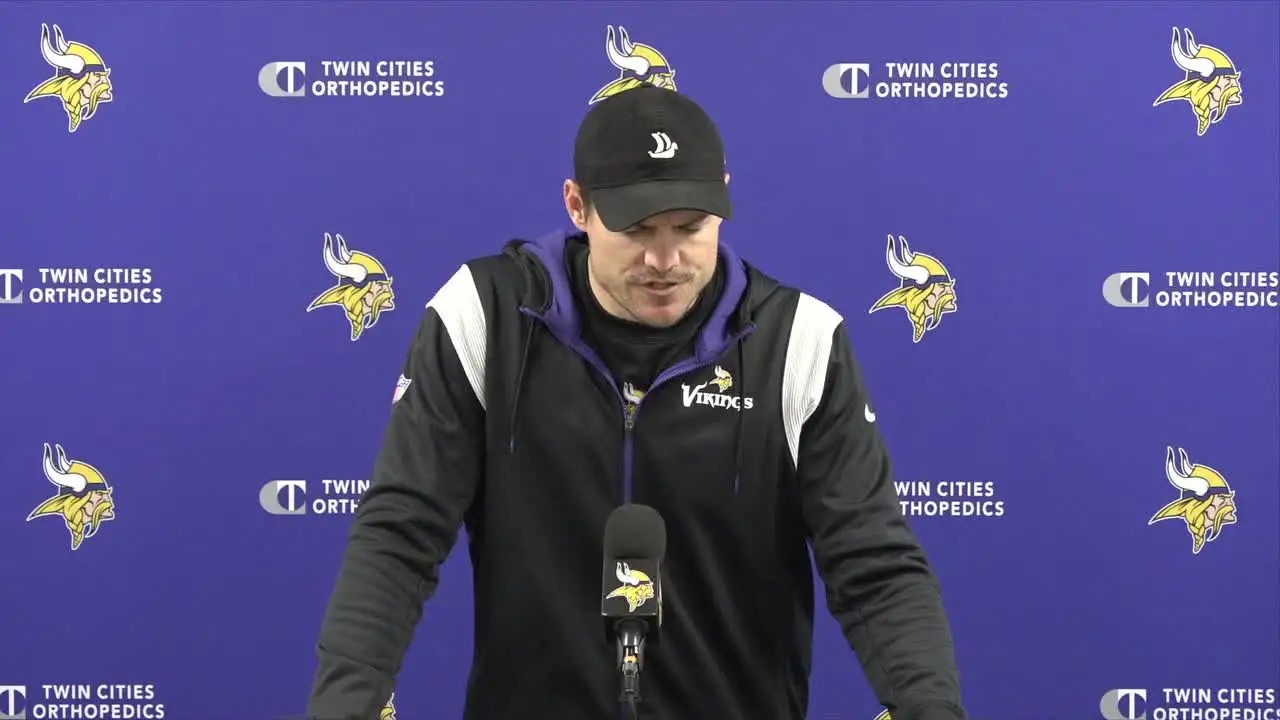The Minnesota Vikings could be clinching their pocketbooks tightly if they extend Kirk Cousins this offseason — and that could lead to Pro Bowl edge rusher Danielle Hunter leaving.
According to a February 10 ESPN report, the Vikings have put their contract talks “on hold” with Hunter until the team decides whether to re-sign Cousins or let the veteran quarterback walk in free agency.
Bleacher Report’s David Kenyon predicted that if the Vikings choose to extend Cousins, Hunter is likely to walk in free agency. ESPN’s Dan Graziano reported that the Chicago Bears are “very high” on Hunter along with the Jacksonville Jaguars.
There’s also an even worse outcome at play: the NFC North champion Detroit Lions signing Hunter for $67 million and allowing him to terrorize the Vikings for the next three seasons.
Presuming the Vikings keep Cousins, their cap crunch might result in Danielle Hunter leaving on the open market.
Worse yet, he might not travel far.
Hunter has notched 10-plus sacks in five of his eight seasons and tallied a career-best 16.5 in 2023. His value, quite literally, has never been higher. While it’s bad (self-inflicted) financial timing for Minnesota, the NFC North-rival Detroit Lions are lurking with a major pass-rushing need.
Losing him to anyone would pain the Vikings, but watching him leave for a division foe would only add to the sting.
Hunter and Cousins are two of the Vikings’ highest-paid players who are approaching their decline but still have a few good years ahead. There are strong cases to be made for signing both players and which one to re-sign will be a key talking point for the next month.
Re-signing the duo makes sense for 2024. Cousins has $28.5 million in dead cap that will count against the 2024 cap sheet if he walks, while Hunter has $14.9 million in potential dead cap if he does not re-sign, according to Over the Cap.
That’s $43.4 million to be paid whether they’re on the roster or not.
If they are re-signed, those bonuses can be used in their new contracts and their cap hits can be lowered by pushing those earnings onto future years of the contract. It makes sense to put that money to use and extend both players.



